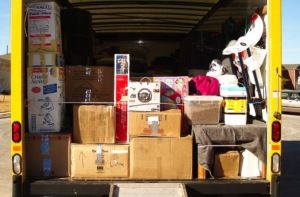News
Copenhagen among most expensive cities to relocate to
This article is more than 8 years old.
Danish capital ranks in top 20 for both relocation costs and first month living costs

Moving can be a costly proposition (photo: TheMuuj, Flickr)
According to the 2017 Relocation Price Index published by the online moving platform Movinga, Copenhagen is one of the most expensive cities in the world in terms of relocation costs.
The Danish capital ranked 15th out of 75 cities on the index in terms of the average moving costs. It was the only Nordic city in the top 20. The average moving cost to Copenhagen was listed as being about 9,175 kroner.
Hong Kong led the way with a cost of about 27,000 kroner, followed by Dubai (17,935), Luanda (15,500), Kuala Lumpur (14,715) and Santiago (14,665), while Singapore, Shanghai, Lagos, Tunis and Reims completed the top 10.
Hanoi, Moscow, Seattle, Lille, Copenhagen, Bucharest, Beijing, Marseille, Manchester and Jakarta made up the next ten spaces.
READ MORE: Copenhagen tops Global Talent Competitiveness Index
Affordable Seoul and Tunis
Copenhagen also ranked 13th in the ‘first month cost’ category, which comprised four subcategories: average cost of rent of a 35-sqm flat, phone set-up, food and drink, and transport.
However, Copenhagen only ranked in the top 20 in one of the subcategories: average rent, for which it placed 10th.
At the opposite end of the spectrum, Seoul was the most affordable city to move to, followed by Bangalore, Cairo, Warsaw and Medellin. And the lowest first month cost was incurred in Tunis, Bangalore, Cairo, Bucharest and Medellin.










































